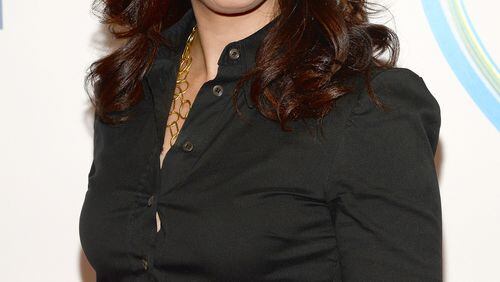Veteran news anchor and reporter Soledad O’Brien is ready to do crime. The former CNN, MSNBC and Al Jazeera America host now presents Oxygen’s “Mysteries & Scandals,” a true crime series she produced. For the show, she uses her journalist skills to reexamine headline-grabbing cases, from O.J. Simpson’s Las Vegas heist to the deadly influence of Slenderman.
The series, which premieres Friday, is one of many projects O’Brien’s tackled since leaving daily journalism in 2013 to start her own production company, Starfish Media. In between producing multiple forthcoming shows and shooting her weekly syndicated political talk show “Matter of Fact,” the New York-based Harvard alum spoke with The Times about crime, the state of journalism and the freedom/responsibility that comes with being your own boss.
Q: You’ve made serious documentaries for CNN and Al Jazeera America on things like the opioid crisis and incarcerated women who raise their children behind bars. Is “Mysteries & Scandals” a total change of pace for you?
A: I've been a reporter who covered crime. I've been a producer who was dealing with crime stories on a national level. Most of these are cases I've covered in some capacity, so it's not totally new for me. (Back then) I literally sat on O.J. Simpson's mother's porch every day, begging her for an interview. But when I left day-to-day journalism and started the production company, the goal was to switch things up. And obviously crime is (a genre) that's really hot right now. We bring a journalistic eye to it. I like to focus on the motivations. How did this happen? I want to understand why someone does what they do.
Q: Do you think you’ve been granted more access to insider angles on these stories because you’re an established news figure as opposed to, say, a celebrity host?
A: I think I was able to leverage off that reputation very easily, because people know the stories I've done (in the past) were complicated, challenging, dealing with race and class. Tricky stories. We navigate them in a way that people felt like they're heard. We would never ambush anybody. Anyone who ever came on any show I've done knew what we were going to talk about.
Q: You’ve been at the center of broadcast journalism, with CNN, MSNBC, HBO, various morning shows, for some time now. What do you think about the state of journalism today?
A: Oh, no, I feel like you need to hand me a drink for this one. (Laughs) There's high value in journalistic voice, something that I wasn't sure was going to exist when I left day-to-day journalism. Now the work you're doing really matters. The stakes are high. It matters to speak up and say, "This thing is not true. This is the truth." Even on Twitter.
Q: You are fearless on social media, especially involving matters that involve race equality. Yet you often manage to disarm arguments with reason and compassion, on a platform where those two things are in short supply.
A: I'm not afraid to ask the questions that need to be asked. Some of that is that I'm not 20 years old anymore. What's amazing is that the world's changed. Look at all the different and diverse stories that there are on all these different channels and platforms. But it's not always easy. It feels bad a lot of the time, really bad, but I think we're going to look back on this time and say it was really critical to speak up. And to have good journalism. A lot of things shifted and we all sort of went through a transformation in this era. But it's exhausting. Aren't you tired? I'm so tired.
Q: Yes. There’s no amount of coffee.
A: I'm waiting for 2018. Pretty sure things will calm down. Ha! Talk about cultural shifts. They're seismic. Seismic! Especially for women. What's happening now, it's crazy.
Q: When you just serve as producer, do you miss being in front of the camera?
A: I like being talent. I'm good at it, but I want to grow. I don't want to do the same thing over and over again. I want to do docs and docu-series that I'm not in, that I'm producing. I wanted to be in charge of the vision and not necessarily the talent, and I say that as someone who likes being the talent.
Q: What else are you working on?
A: We have five docs in production now. We're busy. It's great. And stressful. I've also got a deal for a scripted show based on an anchorwoman. And someone asked me to direct, which I've never really done. But I was like, if you're fine with that, I'm fine with it too.






